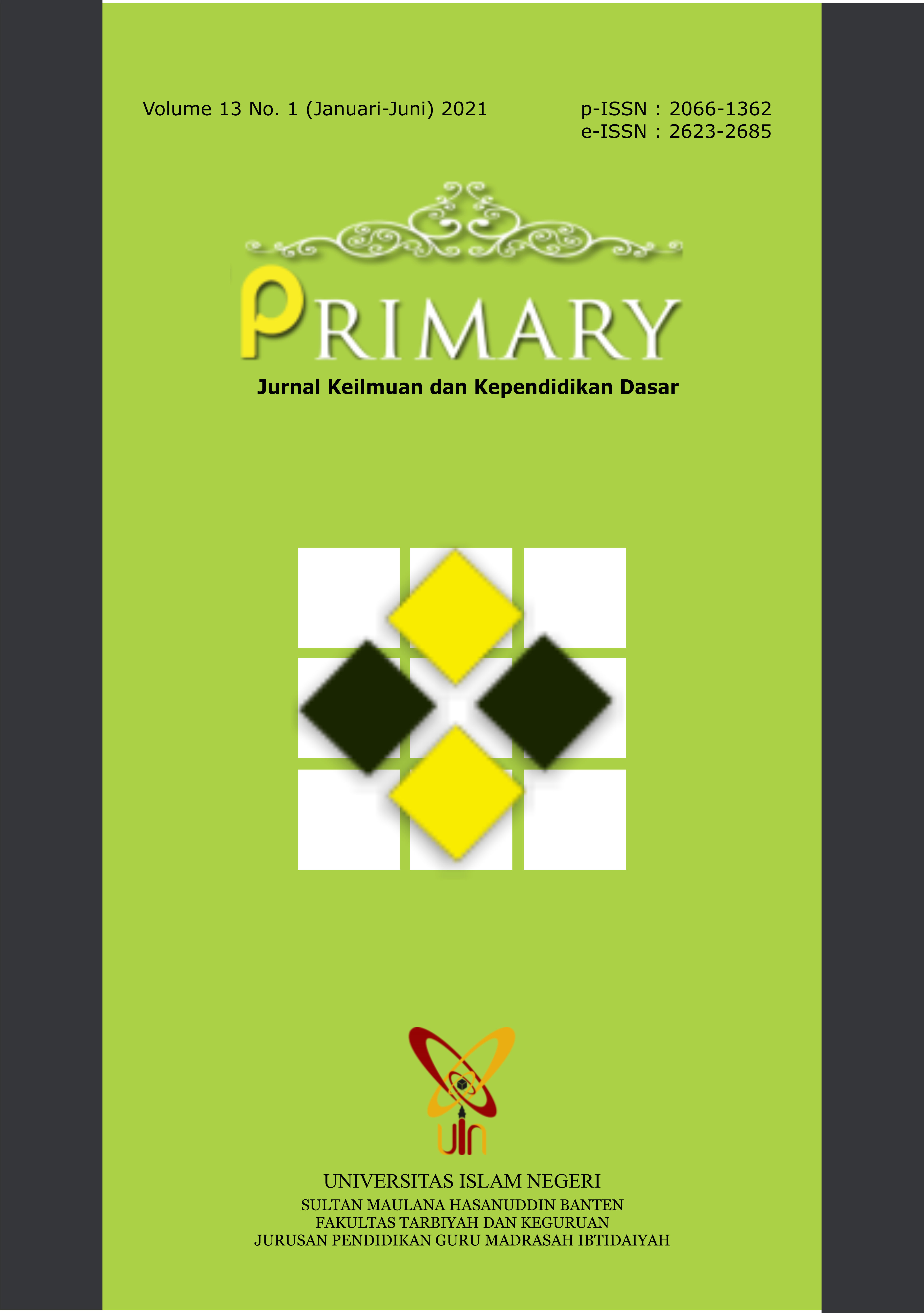GAYA BELAJAR SISWA KELAS III A DALAM PEMBELAJARAN TEMATIK DI MIN 3 BANTUL YOGYAKARTA
 DOI:
DOI:
https://doi.org/10.32678/primary.v13i1.3769
 Abstract viewed : 249 times
|
Abstract viewed : 249 times
|  PDF (Bahasa Indonesia) downloaded : 591 times
PDF (Bahasa Indonesia) downloaded : 591 times
Keywords:
Gaya Belajar, Siswa, Pembelajaran TematikAbstract
Abstract. The purpose of this study is to determine student learning styles, teacher strategies in teaching based on student learning styles, and the implications of student learning styles in Thematic learning in class III A MIN 3 Bantul Yogyakarta. The research is conducted using qualitative methods, with the type of field research, data collection techniques are carried out by observation, documentation and interviews. While the data analysis used Sugiyono's Circular model, namely the descriptive stage, the reduction stage and the selection stage. The results of the data analysis are: 1) There are six types of learning styles in class III MIN 3 Bantul, namely verbal, aural, kinesthetic, visual, logical, and social learning styles. Of the six student learning styles, the dominant frequency of student learning styles in this class is the kinesthetic learning style. 2) There are several specific strategies from the teacher in teaching based on students’ learning styles of class III A by adjusting their classes. 3). There are two implications of student learning styles in class III A MIN Bantul Yogyakarta in Thematic learning, namely using mental science in the application of student learning styles and the importance of knowing student learning styles.
Downloads
Downloads
Published
How to Cite
Issue
Section
License
PRIMARY JOURNAL: https://ftk.uinbanten.ac.id/journals/index.php/primaryis licensed under aCreative Commons Attribution-ShareAlike 4.0 International License
An author who publishes in PRIMARY: Jurnal Keilmuan dan Kependidikan Dasar agrees to the following terms:
- The author retains the copyright and grants the journal the right of first publication of the work simultaneously licensed under the Creative Commons Attribution-ShareAlike 4.0 License that allows others to share the work with an acknowledgement of the work's authorship and initial publication in this journal
- The author can enter into separate, additional contractual arrangements for the non-exclusive distribution of the journal's published version of the work (e.g., post it to an institutional repository or publish it in a book) with the acknowledgement of its initial publication in this journal.
- The author is permitted and encouraged to post his/her work online (e.g., in institutional repositories or on their website) before and during the submission process, as it can lead to productive exchanges, as well as earlier and greater citation of the published work (See The Effect of Open Access).
The names and email addresses entered in this journal site will be used exclusively for the stated purposes of this journal and will not be made available for any other purpose or to any other party.










